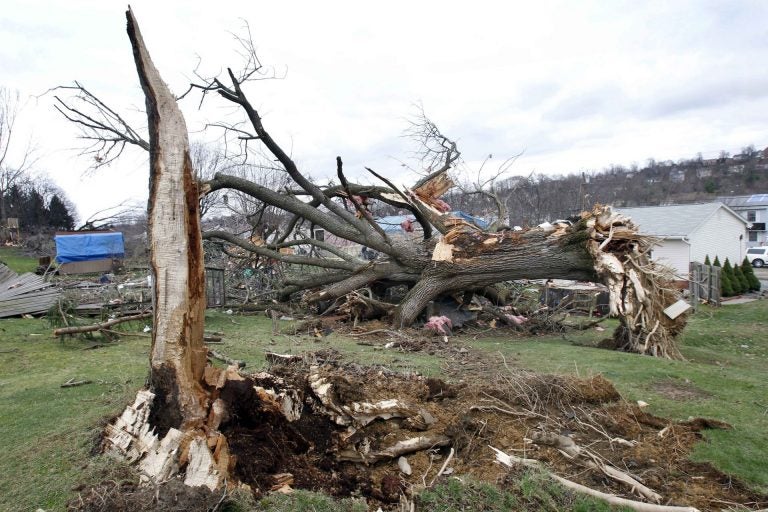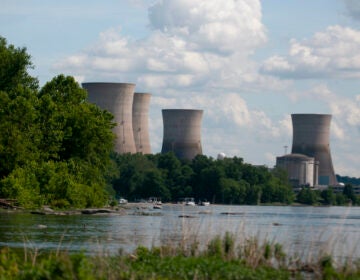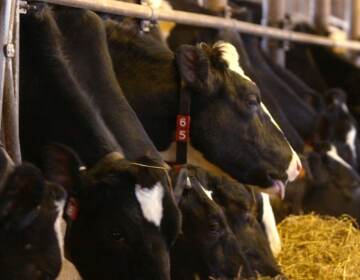Pa. has had a lot of tornadoes this year. But scientists don’t know if there’s a climate change link
Pennsylvania has seen an abnormally high number of tornadoes this year — with more than two dozen confirmed as of last week.

A large tree lays uprooted past the hole where it came from in a yard as people continue cleanup efforts, Thursday, March 24, 2011 in Hempfield, Pa. Severe storms went through the Westmoreland County area on Wednesday March 23, 2011, causing severe damage. The National Weather Service has confirmed that a tornado was responsible for destroying 30 homes and badly damaging about 60 more in western Pennsylvania. (Keith Srakocic)
This article originally appeared on StateImpact Pennsylvania.
—
Pennsylvania has seen an abnormally high number of tornadoes this year — with more than two dozen confirmed as of last week.
What’s not clear is whether the recent spate of severe weather has any link to climate change.
Stephen Strader, an assistant professor of geography and the environment at Villanova University, said tornadoes are highly localized events that require a precise balance of the right conditions, including warm, moist air, and wind shear. It’s already hard to predict whether they will pop up within a few hours’ time frame.
“So, computationally we’re really pushing the limits here of computer technology, as well as our modeling,” he said.
Strader gave the example of thinking of the planet and climate change like a baseball player on steroids. A severe weather event like a tornado is the planet’s equivalent of the player hitting a home run.
“Is climate change — or in this case the steroids — responsible for the home run?” he asked. “Or would they have hit the home run without the steroids? It’s very difficult to discriminate that.”
Strader added that over the long-term, scientists expect the influence of climate change will result in a greater number of severe weather events because the warming will create more days when the ingredients will be right to cook up powerful storms.
Pennsylvania State Climatologist Kyle Imhoff noted that data on severe weather only goes back to the 1950s, and these days, there are more people in the way of storms — many of them holding smartphones — so more of them get reported.
And tornadoes are unique events, he said, that creates a lot of uncertainty.
“There is a lot of evidence a warming climate will give you more water vapor, so you have more moisture to work with,” Imhoff said. “We certainly have evidence flash flooding and heavy rainfall will be impacted by climate change. Whether you get tornadoes or not, there are still a lot of questions about that.”
WHYY is your source for fact-based, in-depth journalism and information. As a nonprofit organization, we rely on financial support from readers like you. Please give today.



